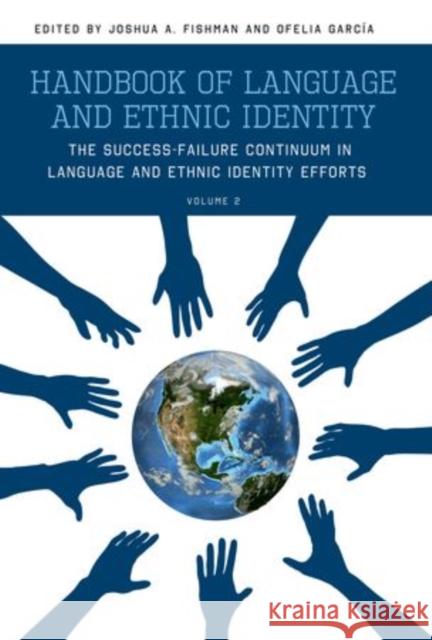Handbook of Language and Ethnic Identity: The Success-Failure Continuum in Language and Ethnic Identity Efforts (Volume 2) » książka
Handbook of Language and Ethnic Identity: The Success-Failure Continuum in Language and Ethnic Identity Efforts (Volume 2)
ISBN-13: 9780195392456 / Angielski / Twarda / 2011 / 512 str.
Handbook of Language and Ethnic Identity: The Success-Failure Continuum in Language and Ethnic Identity Efforts (Volume 2)
ISBN-13: 9780195392456 / Angielski / Twarda / 2011 / 512 str.
(netto: 502,13 VAT: 5%)
Najniższa cena z 30 dni: 511,19
ok. 30 dni roboczych.
Darmowa dostawa!
Like the first volume, The Handbook of Language and Ethnic Identity, Volume 2 is a reference work on the interconnection between language and ethnic identity. In this volume, 37 new essays provide a systematic look at different language and ethnic identity efforts, assess their relative successes and failures, and place the cases on a success-failure continuum. The reasons for these failures and successes and the linguistic, social, and political contexts involved are subtle and highly complex. Some of these factors have to do with whether the language is considered a dialect, as in the cases of Bavarian, Ebonics, and Scots (considered to be dialects of German, American English, and British English, respectively). Other factors have to do with government policy, as in the cases of Basque and Navajo. Still other factors are historical, such as the way Canaanite was supplanted in present-day Israel by another classical language-Hebrew.
Although the volume offers considerable sophistication in the treatment of language, ethnicity and identity, it has been written for the non-specialized reader, whether student or layperson. The contributors are an international group of well-known scholars in a range of fields. Fishman and Garcia provide a detailed introduction that addresses the difficulty of assessing the success or failure of a language. They also present a conclusion that integrates the data presented in the volume.










